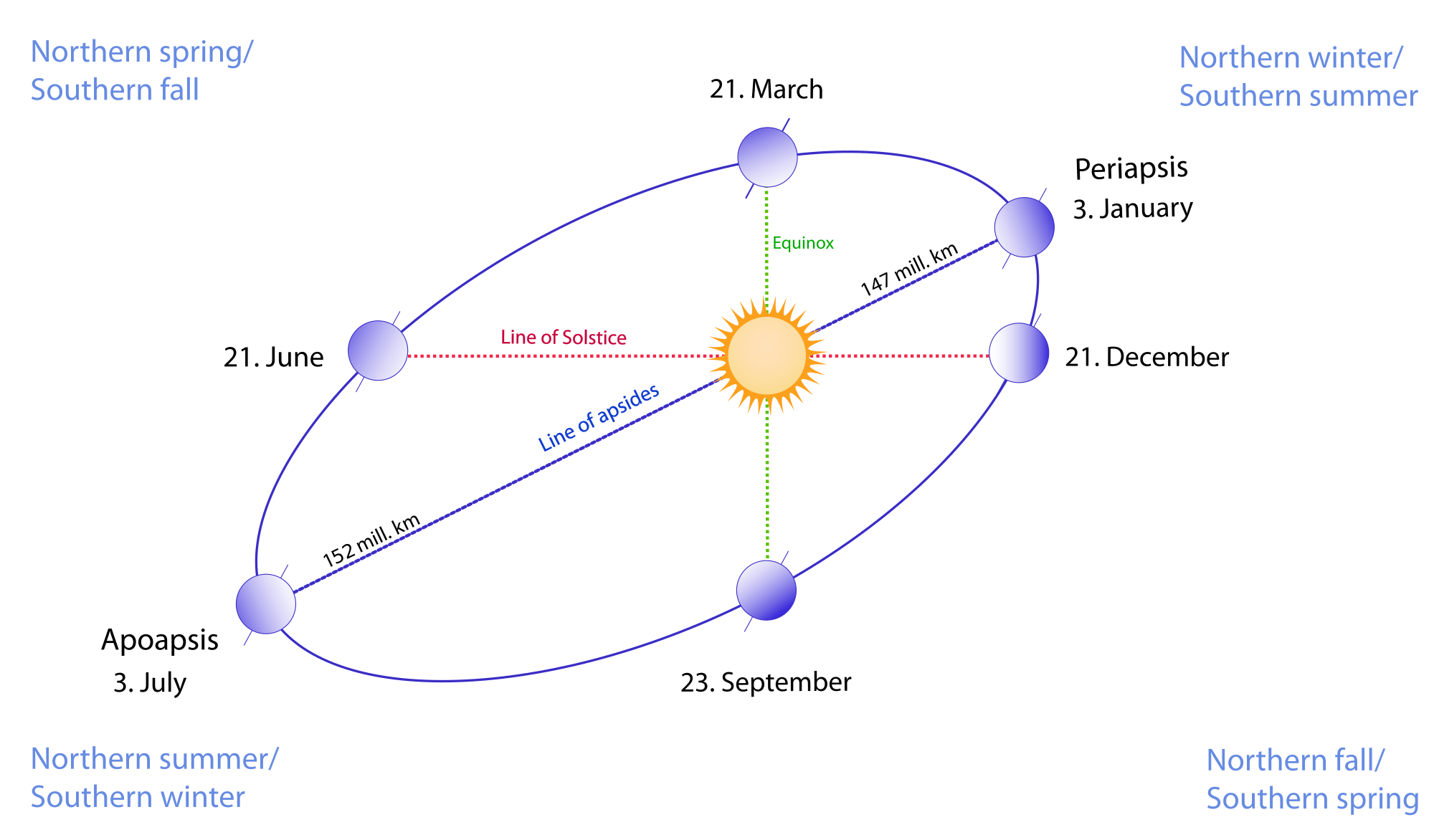Earth’s Elliptical Orbit and Seasons
Though a common misconception about the cause of seasons is that they are caused by the Earth’s distance to the Sun, in actuality, seasons are caused by Earth’s 23 degree axial tilt. But why do changes in Earth’s distance from the Sun have virtually no effect on temperatures on Earth? It seems like a logical explanation for the changing of seasons and many brilliant people still hold this misconception to be true.
Earth orbits the Sun in an ellipse. At its closest point to the Sun, Earth is 147 million kilometers away from the Sun, while at its furthest point from the Sun, Earth is 152 million kilometers away from the Sun. This represents a difference of 5 million kilometers, which certainly seems substantial enough to change temperatures here on Earth. This, however, is not the case.

Since the Earth is so far away from the Sun to begin with, this relatively small change of 5 million kilometers as virtually no effect. Imagine you are holding up a piece of paper and standing at a football field’s length away from a powerful flashlight. You first observe the amount of light hitting the paper and take note. Next, you step a yard closer to the light and observe how much light is hitting the piece of paper. You will not be able to tell the difference in light hitting the piece of paper since the flashlight is so far away to begin with and you only walked 1% closer to the flash light. If you had some very accurate machinery to measure the change you definitely would be able to pick up a tiny change, but there simply would not be any noticeable change.
Earth’s elliptical orbit, though, does have a small effect on seasons. When Earth is closer to the Sun, it travels faster in its orbit than when it is further away from the Sun. During winter in the northern hemisphere, the Sun actually travels one kilometer per second faster than it does during summer in the northern hemisphere. This causes winter in the northern hemisphere to be a full five days shorter than it is in the southern hemisphere! (See here for more)
